Did you know that 999 men died from heart attack in Ireland last year? That’s the statistic underpinning the decision by the Irish Heart Foundation (IHF) to focus on men’s health during this year’s awareness month.
“We felt the focus was warranted, given that statistic, and also the knowledge that men account for almost three quarters of those who die prematurely of heart disease or stroke,” says Janis Morrissey, director of health promotion at the IHF, the national heart and stroke charity.
“The positive news, though, is that 80% of heart disease and stroke is preventable through healthy lifestyles, so we are calling on men to take stock of their lifestyle and think about what changes they might like to make to improve their heart health and reboot their life.”
Step back – reflect – make changes
The IHF, through September and beyond, is offering lots of tips and tools to help men commit to making those positive changes, and you can sign up to take part in the initiative on their website (irishheart.ie).
“We’re asking men to become more aware of their heart disease risk profile and to have a check-up, particularly if there is a history of heart disease in their family,” Janis says.
“It’s about encouraging and motivating men to step back and reflect on their own lifestyle and think about what changes they could make.”
Make a plan
The focus should be on mindset and planning ahead in order to achieve this positive change, she says.
“Rather than waking up on a Monday morning saying, ‘I’m going to be more healthy,’ you have to put a plan in place.
“It’s about asking yourself: ‘What changes am I going to make and how am I going to make those changes?’ It’s also about being aware of what’s going to be challenging about making those changes and asking yourself, ‘What supports could I have in place to help me to keep going?’”
Keep going
The suggested changes revolve around eating more healthily, being more active, not smoking and reducing alcohol intake.
“We all start off with the best of intentions, but it’s keeping things going that’s the hard part,” Janis says.
“That’s why doing a bit of planning in advance can keep the momentum going over time.”
Setting you up for success
Thinking about how important this change is to you is also important.
“Ask yourself, on a scale of 1-10, how important is this to you? Also, on a scale of 1-10, ask yourself, ‘How confident do I feel about making these changes?’ If you find yourself thinking, ‘I don’t think I can do it,’ that is telling in its own right. Maybe you should say, ‘September is not the right time for me but October would be better. I’ll have thought about it and planned what I’ll do and be more confident about it’. It’s about good planning - whether that’s a decision to join a five-a-side kickabout team or add more veg to your meals every day. Every farmer has to plan their farm work. It’s the same with this. Planning gets you into the right mindset and sets you up for success.”
Get your heart thumping
There are two messages in relation to being more active according to the IHF spokesperson.
The first is to move more. “The less sitting down and the more you move in general the better. That’s the general guide,” Janis states. “The second message is that moderate intensity exercise as needed. That’s where your heart is beating faster, your breathing increases and you are feeling warmer. That’s where your heart gets a real benefit.”
Food focus
The more fresh food and less processed, the better – that’s Janis’s main piece of nutritional advice.
“Food is about much more than fuelling our bodies, however. It should also be about pleasure and if you constantly feel deprived with what you are eating you won’t be able to sustain the effort. Moderation is very important so it’s about the portion sizes and frequency in terms of how often you’re having a particular food. It is about having a healthy relationship with food.”
The advice is to:
Eat more vegetables.Eat more fruit.Keep an eye on portions sizes (particularly around red meat).Balance red meat consumption with some fish and white meat.Try some ‘meat free days’.Healthy snacks
Making a decision to eat healthy snacks can be a good action to commit to. Here are some tips from the IHF:
1 Always have fruit and vegetables handy. Vegetables and fruit are always the best snack choice as they contain vitamins and minerals, are a good source of fibre and count towards your five portions a day. Pre-prepare some ready-to-eat fruit and veg like cucumber, cherry tomatoes, carrots or peppers. A handful of nuts can also be a good choice.
2 Get creative with better-for-you snacks. Make healthy snacking more interesting by:
Dipping fruit or veggie sticks in yoghurt or hummus.Adding chopped fresh or dried fruit and nuts to natural yoghurt. Chopping up some cheese and grapes to take with you. 3 Plan and prepare in advance. Make a shopping list for snack so that you avoid impulse buying.
4 Always check the label. The best choices have a lower fat, salt and sugar content. When choosing snacks to buy in shops always read the labels and use the IHF’s handy food shopping guide below.
5 Home habits. Have a bowl of fruit on display on the kitchen counter and yogurts in the front of the fridge. Keep less healthy treats out of sight.
6 Remember – snacking is simply meant to keep hunger at bay, it’s not a meal so use the food pyramid to guide serving size.
You can watch a video about rebooting your life at irishheart.ie/campaigns/reboot/
Tom Gilsenan is from the village of Kilskyre near Kells in Co Meath.
From a farming background, but also with an IT scanning bureau business in Dublin, Tom farms 10 acres and keeps some sheep and horses “to keep himself sane”.
He tells us about the lead up to his heart issues.
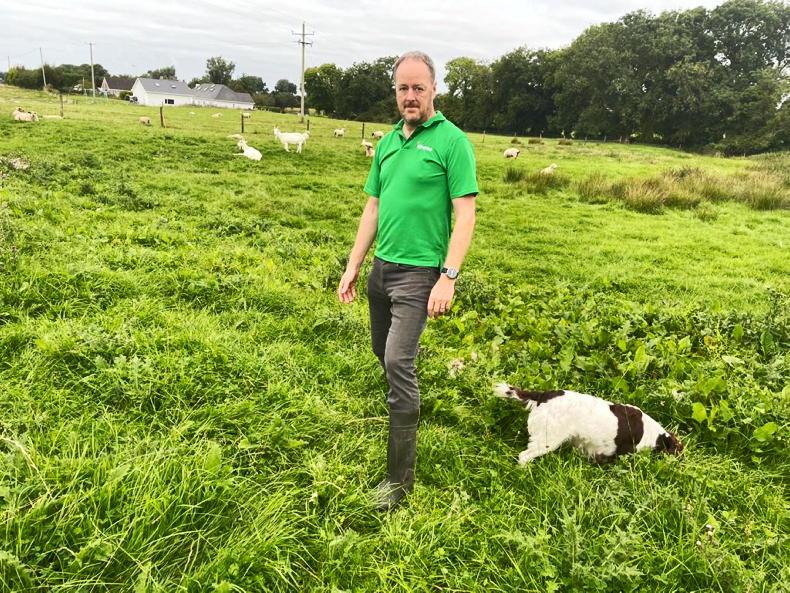
Tom Gilsenan is from the village of Kilskyre near Kells in Co Meath.
“I was quite fit because in lockdown I used to train three nights a week at home, but in hindsight, there was a change in January this year. When I was out feeding sheep, carrying a bucket of nuts through the heavier ground, I used to notice a pulling sensation on my heart but I didn’t really take much heed of it. By April, though, I was feeling sore and thought I had pulled muscles in my ribcage. I had arranged to see my physio thinking it was a pulled muscle but when I felt worse I went to my GP who did an ECG and then sent me to Navan Hospital where I was admitted to the cardio care unit within hours and told that I had pneumonia, a clot on the lung and atrial fibrillation. Being COVID time, there was concern that I had that – but I didn’t.
“Within eight days the pneumonia had cleared up with the antibiotics and I had been put on beta blockers and blood thinners for my heart.
“While the acute hospital care was very good, I found that I needed some advice about rehab when I got home as I was experiencing a bit of fibrillation (a rhythm disorder in the heart beat). The IHF’s Nurseline was very helpful then. I rang them a couple of times and because they are so experienced, they are able to tell you what’s normal and what’s not normal, in plain language, so I got off the phone feeling reassured and that it’s just a case of taking things slowly and adjusting to what has happened. My problem was not knowing how much or how little exercise to do to build myself up again after the acute phase. You want to jump back in to pushing yourself again (after a cardiac incident) but you have to make sure you don’t overdo it.
“Currently, I’m going through an investigation process to find out the cause. They want to find out if the fibrillation was caused by infection, the pneumonia or something else, so I’m seeing a specialist and getting CT coronary scans and ultrasounds done to make sure that there are no blockages in my arteries.
“They have to do all that before they do a procedure where they reset your heart and rhythm. For people my age, I’m 49, this procedure is often what’s used if you don’t have any obvious blockages. They go that ‘reset’ route in the hope that they can get you off medication permanently.
“The beta blockers and thinners (that I’m still taking) are there to do a job, which is to slow down your heart rate, but with them it does leave you a bit more sluggish so hopefully that will be the solution for me. They do this six months or so after the initial cardiac incident when everything has settled down so I’ll know what their decision will be very soon.
“Looking back, I didn’t know I was that sick. I am involved with the local hurling club and fairly active and wasn’t feeling sickly for weeks or anything. I suppose it does highlight the importance, when you get to this age, of getting things checked regardless of how you feel because you just don’t know that there may be something wrong
“It made me realise, too, how prevalent heart issues are in Ireland, and that farmers should look after themselves. So many of them are part time and trying to keep a job going as well as the farm. Sometimes you tend to ignore health issues then before you know it it’s on top of you so it’s worth getting the check-ups.”
Read more
Living with haemochromatosis
Dentists now playing catch-up with client care post-COVID
Did you know that 999 men died from heart attack in Ireland last year? That’s the statistic underpinning the decision by the Irish Heart Foundation (IHF) to focus on men’s health during this year’s awareness month.
“We felt the focus was warranted, given that statistic, and also the knowledge that men account for almost three quarters of those who die prematurely of heart disease or stroke,” says Janis Morrissey, director of health promotion at the IHF, the national heart and stroke charity.
“The positive news, though, is that 80% of heart disease and stroke is preventable through healthy lifestyles, so we are calling on men to take stock of their lifestyle and think about what changes they might like to make to improve their heart health and reboot their life.”
Step back – reflect – make changes
The IHF, through September and beyond, is offering lots of tips and tools to help men commit to making those positive changes, and you can sign up to take part in the initiative on their website (irishheart.ie).
“We’re asking men to become more aware of their heart disease risk profile and to have a check-up, particularly if there is a history of heart disease in their family,” Janis says.
“It’s about encouraging and motivating men to step back and reflect on their own lifestyle and think about what changes they could make.”
Make a plan
The focus should be on mindset and planning ahead in order to achieve this positive change, she says.
“Rather than waking up on a Monday morning saying, ‘I’m going to be more healthy,’ you have to put a plan in place.
“It’s about asking yourself: ‘What changes am I going to make and how am I going to make those changes?’ It’s also about being aware of what’s going to be challenging about making those changes and asking yourself, ‘What supports could I have in place to help me to keep going?’”
Keep going
The suggested changes revolve around eating more healthily, being more active, not smoking and reducing alcohol intake.
“We all start off with the best of intentions, but it’s keeping things going that’s the hard part,” Janis says.
“That’s why doing a bit of planning in advance can keep the momentum going over time.”
Setting you up for success
Thinking about how important this change is to you is also important.
“Ask yourself, on a scale of 1-10, how important is this to you? Also, on a scale of 1-10, ask yourself, ‘How confident do I feel about making these changes?’ If you find yourself thinking, ‘I don’t think I can do it,’ that is telling in its own right. Maybe you should say, ‘September is not the right time for me but October would be better. I’ll have thought about it and planned what I’ll do and be more confident about it’. It’s about good planning - whether that’s a decision to join a five-a-side kickabout team or add more veg to your meals every day. Every farmer has to plan their farm work. It’s the same with this. Planning gets you into the right mindset and sets you up for success.”
Get your heart thumping
There are two messages in relation to being more active according to the IHF spokesperson.
The first is to move more. “The less sitting down and the more you move in general the better. That’s the general guide,” Janis states. “The second message is that moderate intensity exercise as needed. That’s where your heart is beating faster, your breathing increases and you are feeling warmer. That’s where your heart gets a real benefit.”
Food focus
The more fresh food and less processed, the better – that’s Janis’s main piece of nutritional advice.
“Food is about much more than fuelling our bodies, however. It should also be about pleasure and if you constantly feel deprived with what you are eating you won’t be able to sustain the effort. Moderation is very important so it’s about the portion sizes and frequency in terms of how often you’re having a particular food. It is about having a healthy relationship with food.”
The advice is to:
Eat more vegetables.Eat more fruit.Keep an eye on portions sizes (particularly around red meat).Balance red meat consumption with some fish and white meat.Try some ‘meat free days’.Healthy snacks
Making a decision to eat healthy snacks can be a good action to commit to. Here are some tips from the IHF:
1 Always have fruit and vegetables handy. Vegetables and fruit are always the best snack choice as they contain vitamins and minerals, are a good source of fibre and count towards your five portions a day. Pre-prepare some ready-to-eat fruit and veg like cucumber, cherry tomatoes, carrots or peppers. A handful of nuts can also be a good choice.
2 Get creative with better-for-you snacks. Make healthy snacking more interesting by:
Dipping fruit or veggie sticks in yoghurt or hummus.Adding chopped fresh or dried fruit and nuts to natural yoghurt. Chopping up some cheese and grapes to take with you. 3 Plan and prepare in advance. Make a shopping list for snack so that you avoid impulse buying.
4 Always check the label. The best choices have a lower fat, salt and sugar content. When choosing snacks to buy in shops always read the labels and use the IHF’s handy food shopping guide below.
5 Home habits. Have a bowl of fruit on display on the kitchen counter and yogurts in the front of the fridge. Keep less healthy treats out of sight.
6 Remember – snacking is simply meant to keep hunger at bay, it’s not a meal so use the food pyramid to guide serving size.
You can watch a video about rebooting your life at irishheart.ie/campaigns/reboot/
Tom Gilsenan is from the village of Kilskyre near Kells in Co Meath.
From a farming background, but also with an IT scanning bureau business in Dublin, Tom farms 10 acres and keeps some sheep and horses “to keep himself sane”.
He tells us about the lead up to his heart issues.

Tom Gilsenan is from the village of Kilskyre near Kells in Co Meath.
“I was quite fit because in lockdown I used to train three nights a week at home, but in hindsight, there was a change in January this year. When I was out feeding sheep, carrying a bucket of nuts through the heavier ground, I used to notice a pulling sensation on my heart but I didn’t really take much heed of it. By April, though, I was feeling sore and thought I had pulled muscles in my ribcage. I had arranged to see my physio thinking it was a pulled muscle but when I felt worse I went to my GP who did an ECG and then sent me to Navan Hospital where I was admitted to the cardio care unit within hours and told that I had pneumonia, a clot on the lung and atrial fibrillation. Being COVID time, there was concern that I had that – but I didn’t.
“Within eight days the pneumonia had cleared up with the antibiotics and I had been put on beta blockers and blood thinners for my heart.
“While the acute hospital care was very good, I found that I needed some advice about rehab when I got home as I was experiencing a bit of fibrillation (a rhythm disorder in the heart beat). The IHF’s Nurseline was very helpful then. I rang them a couple of times and because they are so experienced, they are able to tell you what’s normal and what’s not normal, in plain language, so I got off the phone feeling reassured and that it’s just a case of taking things slowly and adjusting to what has happened. My problem was not knowing how much or how little exercise to do to build myself up again after the acute phase. You want to jump back in to pushing yourself again (after a cardiac incident) but you have to make sure you don’t overdo it.
“Currently, I’m going through an investigation process to find out the cause. They want to find out if the fibrillation was caused by infection, the pneumonia or something else, so I’m seeing a specialist and getting CT coronary scans and ultrasounds done to make sure that there are no blockages in my arteries.
“They have to do all that before they do a procedure where they reset your heart and rhythm. For people my age, I’m 49, this procedure is often what’s used if you don’t have any obvious blockages. They go that ‘reset’ route in the hope that they can get you off medication permanently.
“The beta blockers and thinners (that I’m still taking) are there to do a job, which is to slow down your heart rate, but with them it does leave you a bit more sluggish so hopefully that will be the solution for me. They do this six months or so after the initial cardiac incident when everything has settled down so I’ll know what their decision will be very soon.
“Looking back, I didn’t know I was that sick. I am involved with the local hurling club and fairly active and wasn’t feeling sickly for weeks or anything. I suppose it does highlight the importance, when you get to this age, of getting things checked regardless of how you feel because you just don’t know that there may be something wrong
“It made me realise, too, how prevalent heart issues are in Ireland, and that farmers should look after themselves. So many of them are part time and trying to keep a job going as well as the farm. Sometimes you tend to ignore health issues then before you know it it’s on top of you so it’s worth getting the check-ups.”
Read more
Living with haemochromatosis
Dentists now playing catch-up with client care post-COVID




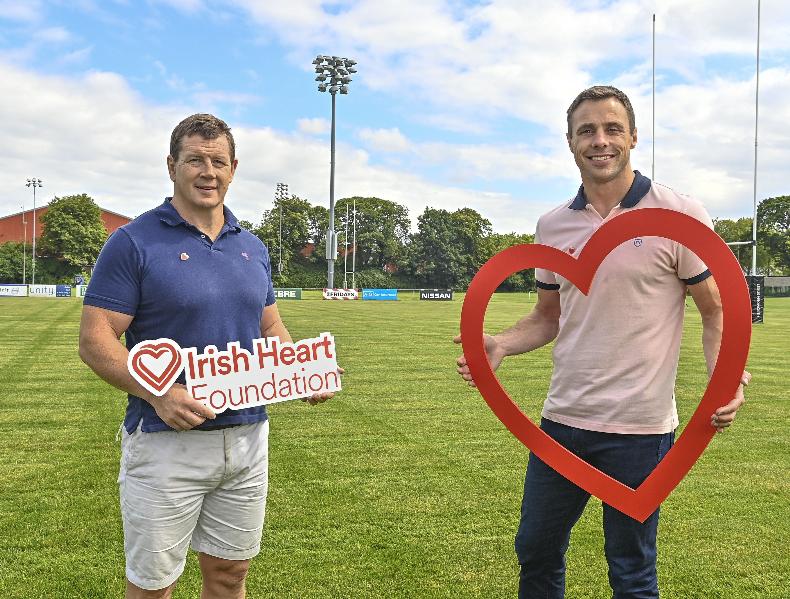
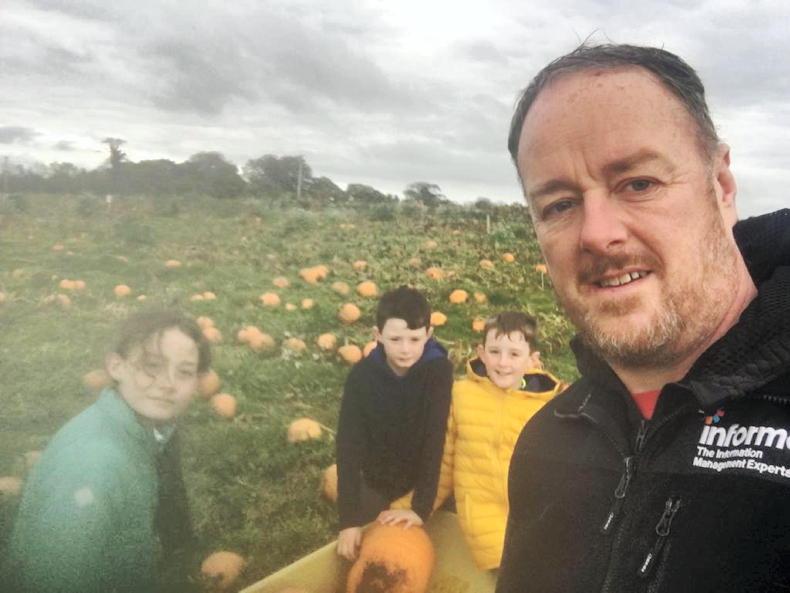

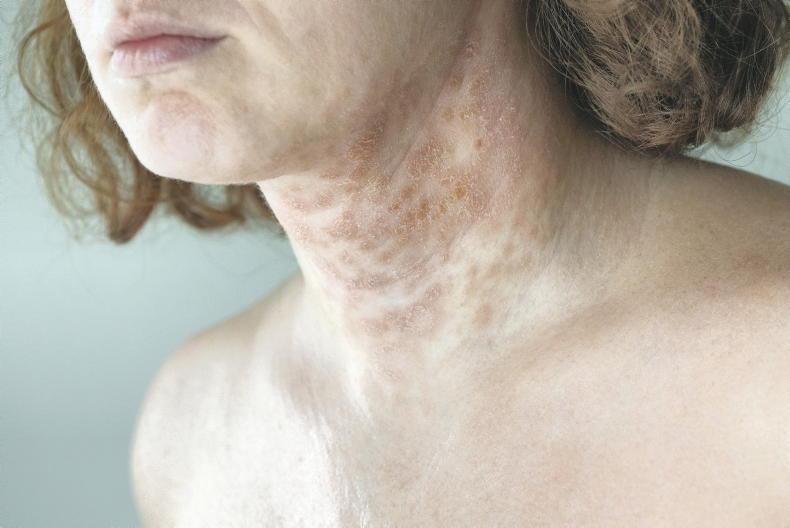

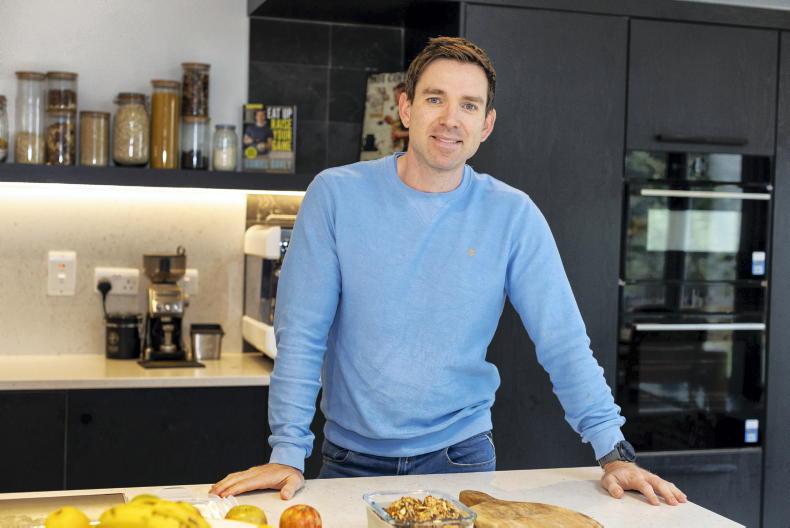

SHARING OPTIONS